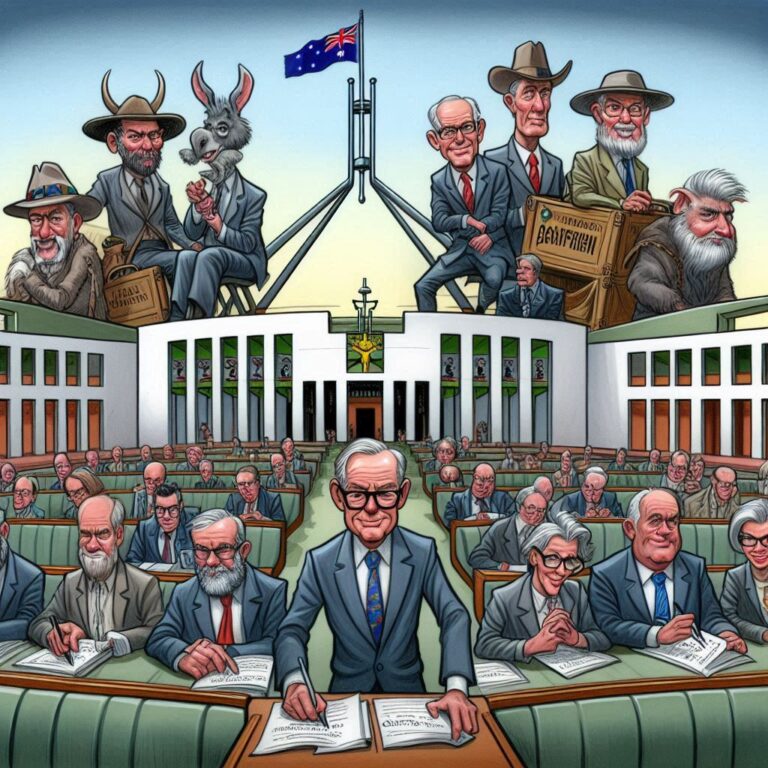

Independent MPs in the Australian Parliament
In recent years, Australia’s political landscape has undergone significant changes. One of the most noteworthy shifts has been the rapid increase in the number of Independent Members of Parliament (MPs). This trend is not only transforming the nature of parliamentary proceedings but also affecting the policies and priorities of the government. This article explores the rise of Independent MPs and their impact on Australian politics.
The Rise of Independent MPs
A New Political Era
The increasing number of Independent MPs marks a departure from the traditional two-party dominance that has characterized Australian politics for decades. The Liberal and Labor parties, which have historically been the nation’s primary political forces, are now facing significant competition from Independents who have successfully captured the public’s attention.
Why Voters Are Turning to Independents
Several factors contribute to the growing popularity of Independent MPs:
- Disillusionment with Major Parties: Many voters are frustrated with the perceived inefficacy and partisanship of the major parties.
- Local Representation: Independents often campaign on local issues that resonate more directly with their constituents.
- Fresh Perspectives: Independent candidates are seen as bringing new ideas and perspectives to the table, free from party-line constraints.
Impact on Parliamentary Proceedings
Shifting Power Dynamics
With more Independents in parliament, the traditional power structures are shifting. These MPs often act as ‘kingmakers’ in closely contested votes, giving them leverage to influence legislation and government decisions.
Coalition Building
This shift has led to an increased need for coalition-building and negotiation. The major parties can no longer rely solely on their members’ votes but must engage with Independents to pass legislation. This requires a greater focus on consensus and collaboration.
Policy Implications
Focus on Local Issues
Independent MPs often prioritize local issues that may have been overlooked by the major parties. This has led to more targeted and community-focused policies. Issues like healthcare, local infrastructure, and environmental conservation have gained more attention thanks to the advocacy of Independents.
Diverse Policy Perspectives
The presence of Independents introduces a diversity of policy perspectives that can enrich parliamentary debates. Whether it’s social justice, economic reforms, or environmental policies, the variety of viewpoints can lead to more comprehensive and well-rounded legislation.
The Future of Australian Politics
Increased Voter Engagement
The rise of Independent MPs has also been linked to increased voter engagement. Constituents feel more connected to their representatives who are not bound by party lines and are more likely to appear approachable and accountable. This can lead to higher voter turnout and a more engaged electorate.
The Challenge for Major Parties
Faced with the growing popularity of Independents, major parties will need to rethink their strategies. To win back voter trust, they may need to adopt more inclusive and flexible approaches, focusing on issues that matter to the electorate rather than sticking rigidly to the party agenda.
Case Studies: Notable Independent MPs
Zali Steggall
Zali Steggall, the Independent MP for Warringah, has been a vocal advocate for climate action. Her election campaign focused heavily on environmental issues, appealing to a constituency that felt ignored by the major parties on this front. Since her election, she has been instrumental in pushing climate-friendly policies.
Helen Haines
Helen Haines, representing the rural electorate of Indi, focuses on healthcare and regional development. Her background as a healthcare professional lends credibility to her advocacy for improved regional healthcare services and infrastructure, which her constituents find highly resonant.
Conclusion
The influx of Independent MPs is undeniably reshaping Australia’s parliamentary landscape. By prioritizing local issues and bringing diverse perspectives to the table, they are driving significant changes in both policy and parliamentary dynamics. As this trend continues, it will be fascinating to see how it influences the future of Australian politics, potentially leading to more engaged voters and a more responsive government.